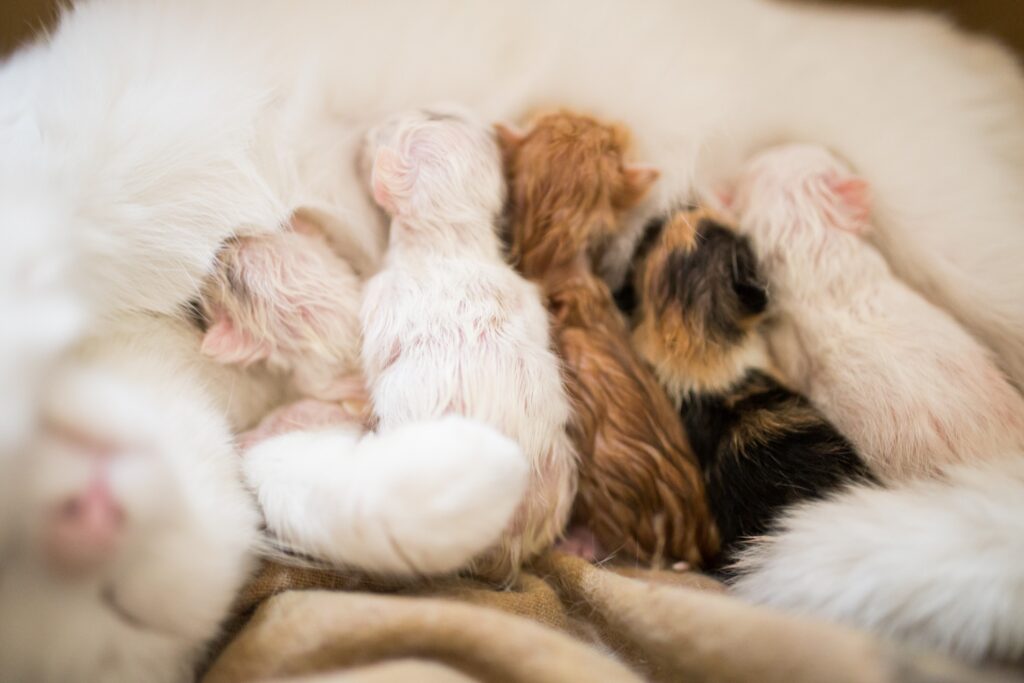As a veterinarian, I frequently meet cat owners eager to learn about the potential size of their pregnant cat’s litter. The question, “How many kittens can a cat have?” may appear straightforward, yet it is shaped by many factors including genetics and nutrition.
Understanding the reproductive capacity of cats not only prepares owners for the potential responsibilities but also helps in ensuring the health and welfare of both the mother cat and her kitten.
In this article I will explain average litter size and some of the factors that influence litter size, so that cat owners can have a better understanding of what to expect during their cat’s pregnancy and delivery.
How Many Kittens Can a Cat Have – Average Litter Size
According to a comprehensive review by researcher Dr. Theros Ng, who studied reproduction across laboratory, cattery, and feral cats by examining a large selection of published studies (1), the average litter size for cats tends to be around 4 to 5 kittens.
However, the range of possible litter sizes is quite broad, extending from 1 to 9 kittens per litter, with most litters falling within a narrower range of 2 to 6 kittens
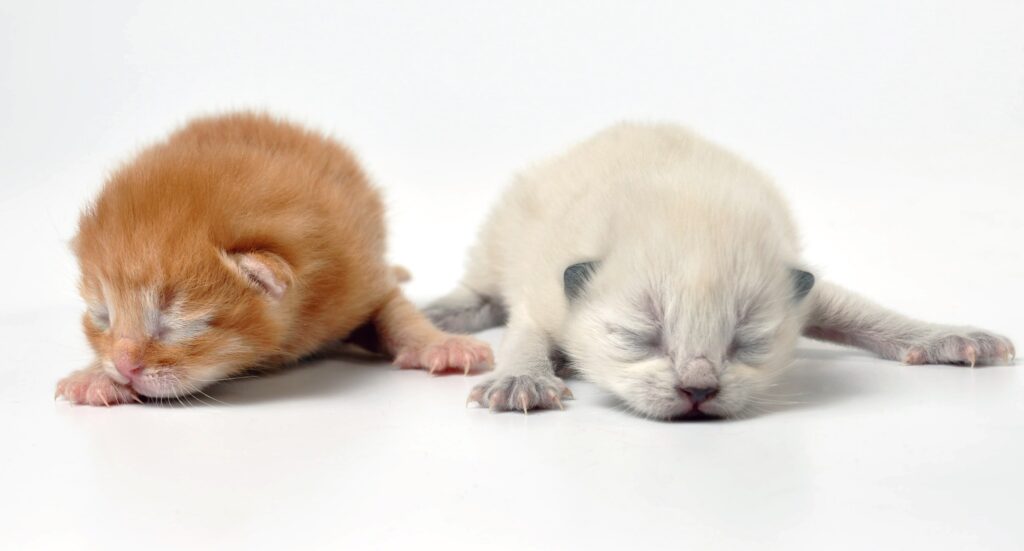
Factor Affecting Litter Size
First-time Mothers
First-time mother cats tend to have fewer kittens in their initial litter compared to subsequent litters.
This phenomenon is well-documented in feline reproductive studies, including Ng’s review which found that the average litter size for first-time mother cats is around 3 kittens. This is slightly lower than the overall average litter size for cats, which is generally between 4 to 5 kittens.
The reasons behind smaller litter sizes in first-time mothers can be attributed to several factors, including the queen’s young age, inexperience, and possibly less developed reproductive system.
Additionally, like in many other species, a cat’s first reproductive cycle may not be as robust as later cycles.
Understanding this pattern can help cat owners and breeders set appropriate expectations for litter sizes in first-time mothers.
Nutrition
Ng’s review also highlights the role nutrition plays, finding that improved nutrition could increase the average litter size by approximately one kitten.
This relationship between nutrition and litter size is likely due to the increased availability of essential nutrients necessary for optimal reproductive health.
Adequate levels of proteins, fats, vitamins, and minerals are crucial for the development of healthy eggs, successful conception, and the maintenance of pregnancy. Malnutrition or inadequate nutrition can lead to reduced fertility, smaller litter sizes, and even complications during pregnancy and birth.
Therefore, ensuring that pregnant cats have access to high-quality, balanced diets specifically formulated for reproduction can significantly impact the number and health of the kittens born.
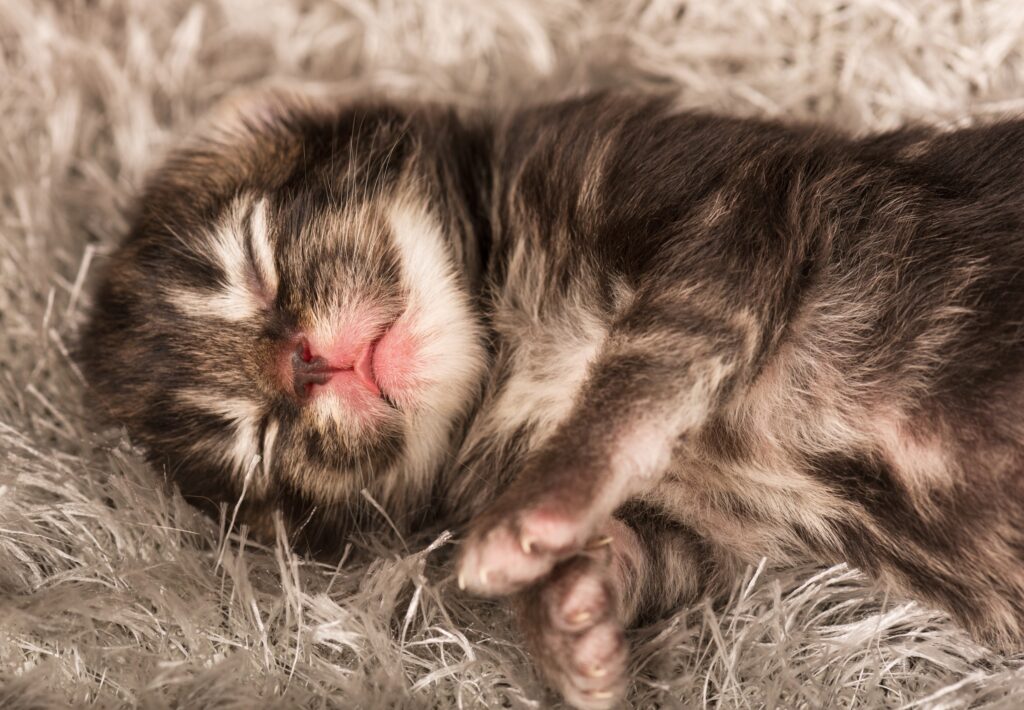
Breed Differences
Another layer of complexity in predicting litter size is the breed of the cat.
While the average across all breeds sits at about 4-5 kittens per litter, specific breeds like the Maine Coon can average around 5-6 kittens, with their litters typically ranging from 3 to 7 kittens(2). Other breeds, such as Persian and Abyssinian cats, tend to have smaller litters with an average around 3 kittens per litter, with a typical range of 2-4(3).
This variation among breeds highlights the genetic factors at play and suggests that prospective breeders and owners consult breed-specific data for more accurate predictions.
Other Factors Influencing Litter Size
Besides age, nutrition, and breed, many other factors can affect how many kittens a cat has. These include:
- Age: Queens that are in their prime reproductive years (usually between 2 to 8 years), tend to have larger litters compared to very young or older cats.
- Genetics: Fertility will vary among individuals, with some cats naturally having the genetic predisposition for larger or smaller litters.
- Health Status: Health issues can reduce a cat’s ability to conceive or carry a litter to term.
- Environmental Conditions: Stressful or unsuitable living conditions can negatively affect a cat’s fertility. This includes both physical stress, such as inadequate living space or poor diet, and psychological stress, such as living in a high-stress environment.
- Seasonality: For outdoor or feral cats, the season can influence litter size due to changes in daylight and availability of resources, although this may be less significant for indoor cats.
Extremes of Litter Sizes
According to the Guinness World Records, the largest litter of domestic cats was born on August 7, 1970, to a Burmese/Siamese cat owned by V. Gane of Kingham, Oxfordshire, UK(4). This extraordinary litter consisted of 19 kittens, though unfortunately, four were stillborn.
On the other end of the spectrum, the smallest litter size is technically one kitten, though it’s also possible for a pregnancy not to go to full term, resulting in no kittens.
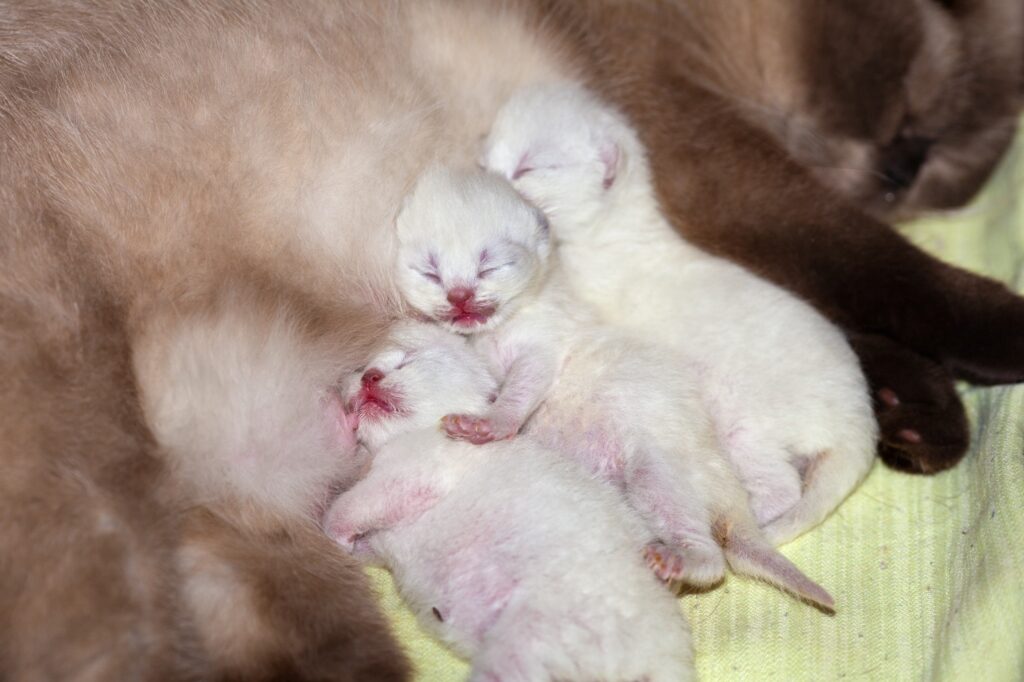
Take-Home Message for Cat Owners
For cat owners expecting kittens, it’s important to know that while most litters have 4 to 6 kittens, the number can vary widely. It’s always important to manage expectations and prepare for the possibility of a smaller or larger litter.
Furthermore, these insights serve as a reminder of the importance of responsible pet ownership. Making sure pregnant cats get the right food, vet care, and a safe and comfortable environment can really make a difference in the health and number of kittens in a litter.
For those not looking to breed their pets, spaying and neutering remain the most responsible choices to prevent unintended litters. As Bob Barker would say, “Help control the pet population. Have your pets spayed or neutered.”
Related Articles:
- How To Dilute Cow Milk For Kittens: Homemade Kitten Formula Recipes
- How Long Does A Kitten Stay A Kitten?
- New Kitten Checklist – Bringing A New Kitten Home
- Everything You Need To Know About Kitten Milk Replacer
- FADING KITTEN SYNDROME: The Silent Threat
Sources
- Reproduction of Domestic Cats in Laboratories, Catteries, and Feral Colonies: A Review
- Obstetric and newborn parameters in the Maine Coon cats
- Birth weight in the feline species: Description and factors of variation in a large population of purebred kittens
- Guinness World Book of Records – Largest litter of domestic cats
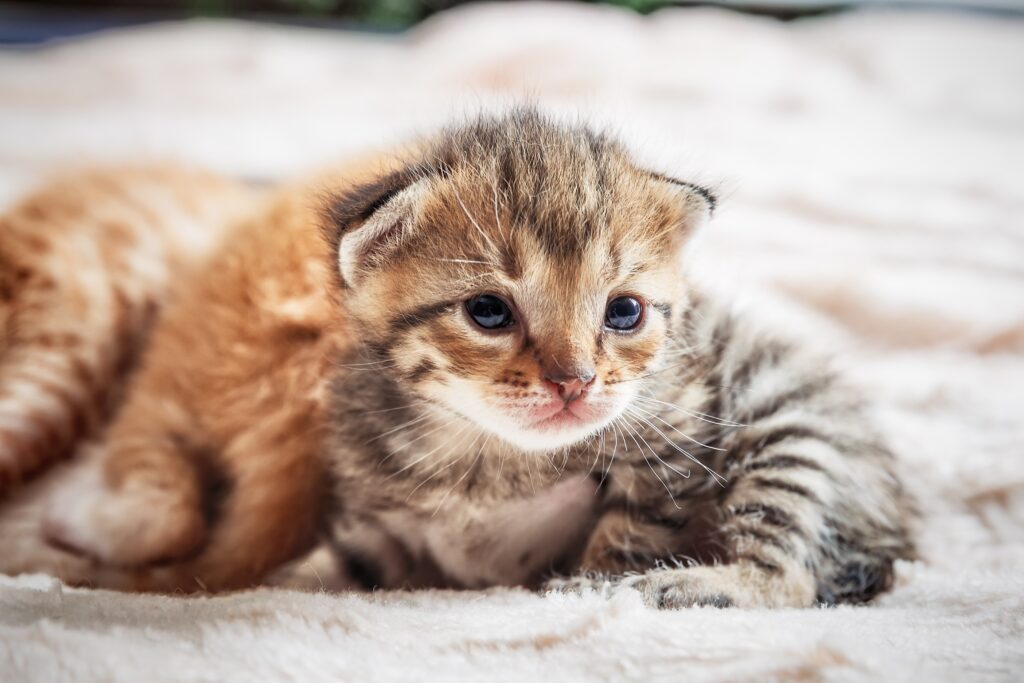
[Image credits: All images are used under license or with permission]

